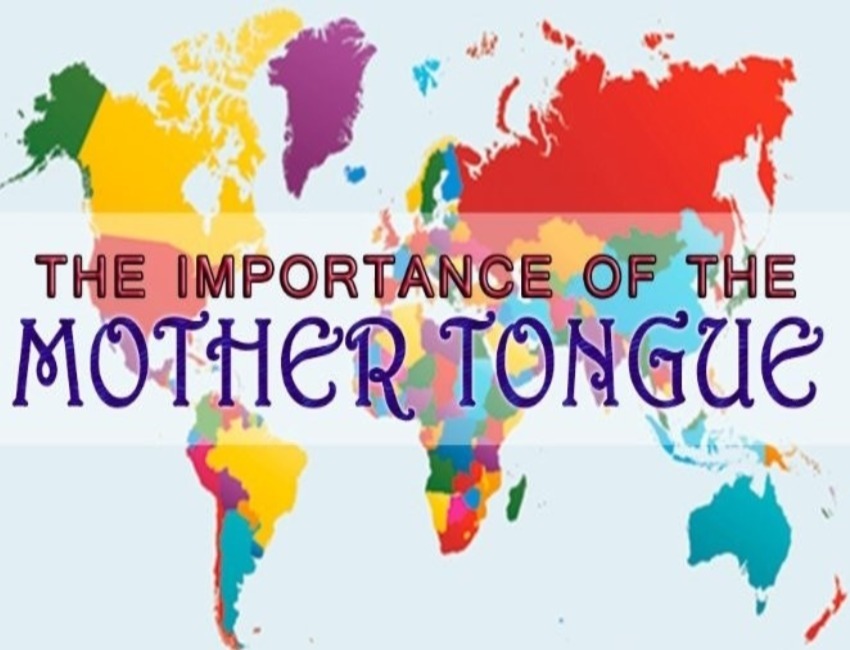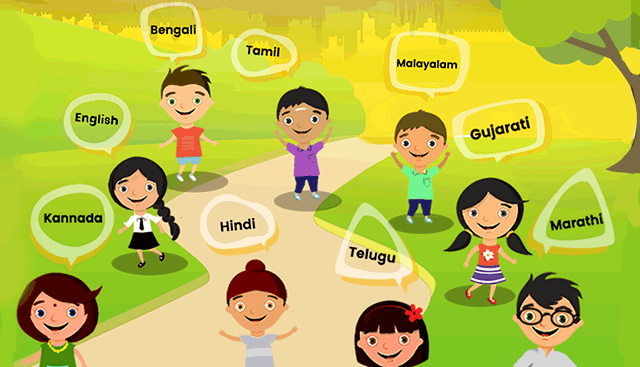Why is it important to teach mother tongue to your kids ? - Advantages of teaching mother tongue to kids
Mother tongue is the language which a child starts hearing after being born. It is not just a language, it is an emotion. It is always very close to the heart. It is a medium to express our emotion. One of the most beautiful moments in life is hearing your child talk and express herself/himself. That is the language we use when we are thinking about something in our mind. It plays an important role in our lives for various reasons. The first language that a baby learns right from his or her birth is termed as the birth language.

Parents today find it very challenging to continue interacting in their mother tongue with their children because of the English language becoming predominant in schools. By doing this we tend to move away from our mother tongue. One of the reasons why most of the parents choose English is that it is universally accepted. It can be a matter of pride to a few parents as well. Or parents could be speaking two different languages. So with mutual understanding, it will be decided to communicate in English with the kid. I strongly believe that parents should teach their mother tongue to their kids. It helps in building good bonding.

The first language that a baby learns right from his or her birth plays a very crucial role and it contributes to the overall development of the kid. Being fluent in the mother tongue, which is also known as the native language, benefits the child in many ways. It connects him to his culture, ensures better cognitive development, and aids in the learning of other languages. It contributes in Intellectual development, forms a better connection with your culture, Commercial benefits, It helps in developing a Strong Identity, Builds the foundation to learn other languages and it enables kids to communicate with their grandparents.
We can teach multiple languages to kids as their grasping power will be good. It is beneficial to know multiple languages. It enables the kid to deal with the big number of audience. It is very important to teach the local language/native language as it gives them the ability to independently deal with the people. People tend to feel the closeness when they talk to others in their mother tongue or native language. It feels more real and improves in building strong bonding. They don't feel left out when they meet their extended family where everybody will be talking in their mother tongue. When a child reads out in their mother tongue since childhood, he or she would have stronger literacy skills in other languages.

It is easier to negotiate or convince people in the native/local language. Languages are the most important way of keeping our culture alive. Often the direct translation of one language to another might not carry the same essence as it is in the source language. Thus, the best way to thoroughly know about a culture is to know the language. Mother tongue helps us stay connected to our culture and our roots.

Mother tongue has a huge positive influence in defining the personality of an individual, however, the medium of education which is usually English also encourages parents to speak to their children in English. Thus, this leads to confusion in the minds of the children and hence, they face difficulties in mastering both mother tongue and English.
What if parents have two different mother tongues? What if you have learned your ‘mother tongue’ from your father, should you then call it your ‘father tongue’? In multilingual families, there are many languages spoken in the home. This is very common in this generation.

Sometimes, the language of the kid will be decided by one of the parents who dominating. They are forced to follow the rules set by their spouse. They tend to agree to avoid any further argument on this topic. This would especially happen when a child is born to bi-lingual parents who would have more than one mother tongue. It can be treated as an advantage. Kids can learn two different native languages at a time.
We can use language based on the situation and purpose. It can be determined based on the group of people we are communicating with. If we are at home, we can communicate with the family in the mother tongue or dominant language set by one of the parents if both the parents have two different mother tongue. At work, one can use English.
We never forget our mother tongue. Being exposed to a language early in life changes how your brain deals with foreign dialects as an adult. The first language we learn will always influence how we process sounds. Children are eager learners and can learn languages with ease. It is observed that children who have strong knowledge of their mother tongue find it easier to learn new languages.

Grandparents play a significant role in the upbringing of children. Most are not well versed in other languages apart from their mother tongue. Knowing the mother tongue would help the children in communicating with their grandparents and helps in learning various aspects of life.
As parents, it is your responsibility to expose your children to your mother tongue and encourage them to learn it along with other languages. It opens the door to a lot of benefits which are going to stay with your child throughout his/her life.
Disclaimer: I did a bit of research work on this topic before writing this blog. I do not intend to hurt anybody's feelings. Parents can decide on the best possible thing for their kids.
Stay Safe! Stay Healthy!
See you in my next blog.

Good one Rashmi
ReplyDeleteThank you! 🙂
DeleteIt was good Rashmi
ReplyDeleteNicely written article and quite informative ...
ReplyDeleteHere's my article on how implementing SMART goals can get you on the fast-track to success ... https://bit.ly/31t1313
Visit my profile at https://www.medium.com/@architgarg1515
From Bloggers and writers family 🙂
Nice blog. Thank for posting this article, I found this really interesting. I am also looking for learning mother tongue and this blog is really helpful.
ReplyDelete